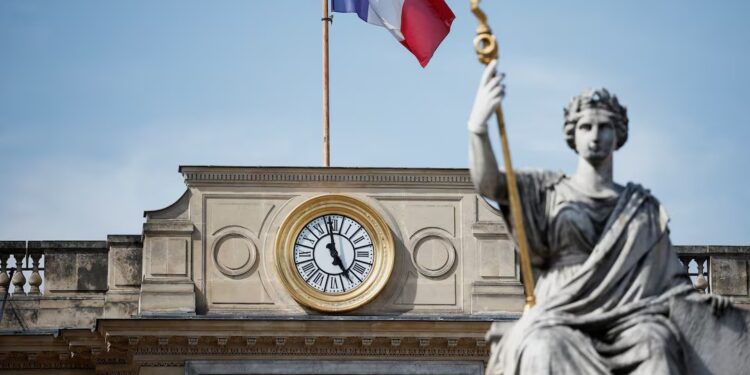France’s credit rating has been cut to its lowest level on record by Fitch, with the agency warning that political instability and persistent deficits will drive debt higher in the coming years. The downgrade complicates efforts by new prime minister Sébastien Lecornu and President Emmanuel Macron to restore confidence in the country’s public finances.
Fitch lowers France’s rating
Fitch Ratings announced on Friday that it had downgraded France’s long-term credit rating to BBB+, the lowest level the country has ever received from a major rating agency. The move reflects concerns over France’s rising debt-to-GDP ratio, which is forecast to climb above 112% by 2027, as well as weak prospects for fiscal consolidation amid political divisions.
The decision comes just weeks after Lecornu was appointed prime minister, tasked with stabilising Macron’s government following months of parliamentary deadlock and widespread protests over pension reforms and public spending cuts.
Political turmoil adds to fiscal strain
Analysts point to France’s fragmented National Assembly, where Macron’s centrist alliance lacks a majority, as a central obstacle to implementing deficit-reduction measures. Efforts to rein in spending on welfare, pensions, and energy subsidies have faced fierce resistance from opposition parties and unions.
The downgrade highlights how political instability is undermining fiscal planning. “France’s debt dynamics are among the weakest in the eurozone, and the political environment makes structural reforms difficult,” Fitch said in its statement.
Market reaction and European concerns
French bond yields rose following the downgrade, reflecting investor nervousness over the country’s borrowing costs. While still far below the peaks of the eurozone debt crisis a decade ago, the rise underscores the sensitivity of markets to signs of fiscal weakness in one of the bloc’s largest economies.
The downgrade also raises broader concerns for the eurozone, where sluggish growth and heavy public spending in several countries are testing the European Union’s fiscal rules. France’s downgrade may put renewed pressure on Brussels to push for tighter compliance once new fiscal frameworks are rolled out in 2026.
Challenges for Macron and Lecornu
For Macron, the downgrade represents a major political setback. His administration has presented itself as a reforming force determined to align France’s finances with European norms, but Fitch’s move signals that markets remain unconvinced.
Lecornu now faces the challenge of balancing market expectations with domestic political realities. Attempts at deeper cuts could inflame tensions in a country still marked by protests and strikes, while failure to act risks further downgrades and higher borrowing costs.
The downgrade signals a narrowing path for France’s leaders as they attempt to navigate between fiscal prudence and political survival. The coming months will test whether Macron’s government can restore stability or whether France risks sliding deeper into financial uncertainty.
REFH – Newshub, 13 September 2025




Recent Comments